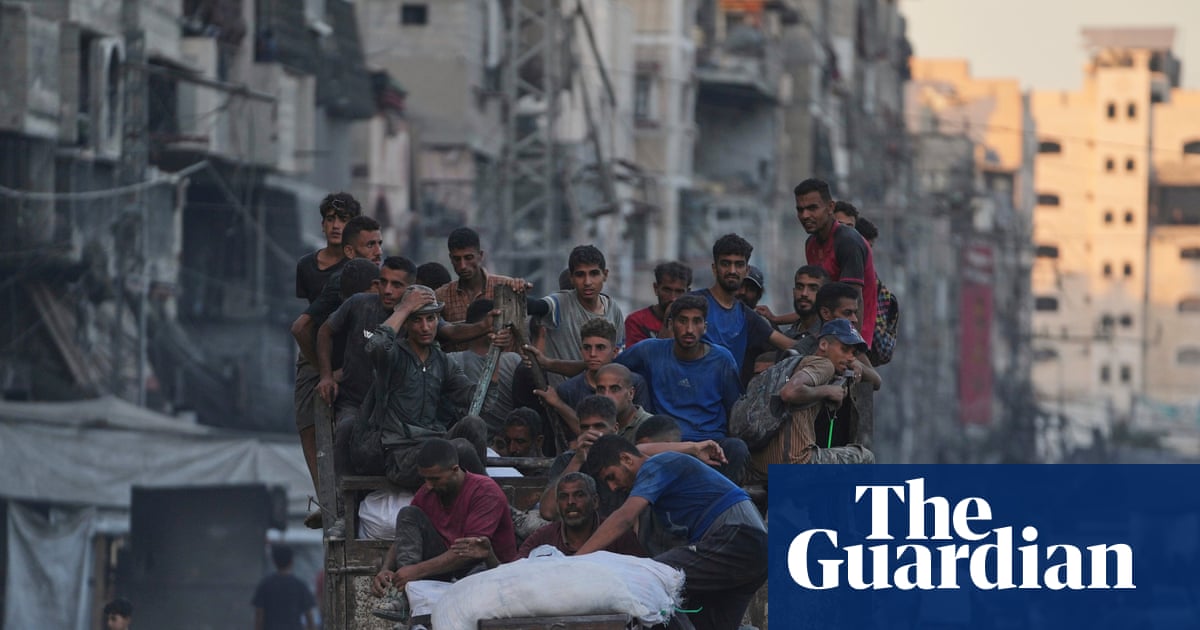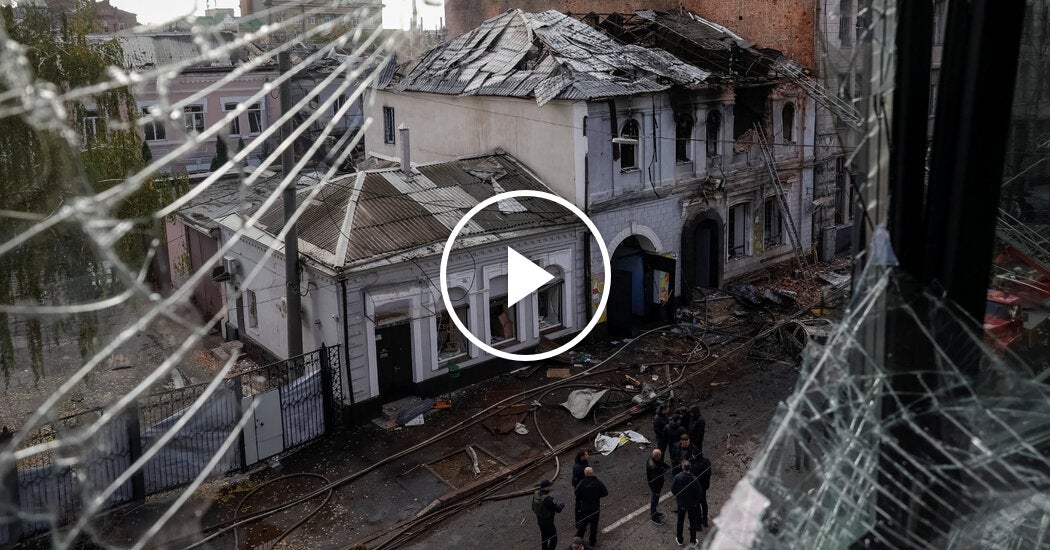Israel’s military will no longer pause fighting to allow aid deliveries in Gaza City, a military spokesperson has said, in a decision likely to deepen the famine already gripping the north of the territory.
Israeli forces have been stepping up attacks in and around Gaza City as the military prepares for a ground operation that humanitarian groups and many of Israel’s closest allies have warned will be catastrophic for hundreds of thousands of Palestinian civilians already struggling to survive hunger, disease and Israeli attacks.
Gaza’s health ministry said on Friday that malnutrition had killed five people and Israeli strikes had killed 59 others over the previous 24 hours.
In a statement on X the Israel Defense Forces (IDF) announced that the “local tactical pause” would no longer apply to Gaza City as of Friday morning. The whole city was now considered a “dangerous combat zone”, the military said, although Israel has not ordered civilians to evacuate.
About 80% of Gaza is under evacuation orders, with civilians crammed into just one-fifth of its total area. Even those areas are not safe, with Israeli attacks targeting parts it has labelled “humanitarian zones”.
The Israeli military described the attacks now under way as the “initial stages” of a planned operation, although military chiefs are reportedly still arguing with the prime minister, Benjamin Netanyahu, about whether the military has the capacity to do what he has ordered after nearly two years of war.
Also on Friday, the Israeli military announced it had recovered the remains of the 55-year-old hostage Ilan Weiss and another unnamed hostage. Weiss was killed in the 7 October attack and his body was taken to Gaza.
After international pressure over starvation in Gaza, Israel last month said it would pause fighting for a part of each day to allow more food convoys to reach communities across Gaza.
Israel also slightly eased its blockade on aid shipments, but the new measures were only enough to slow the progress towards famine in Gaza City, not to reverse it.
Israeli tanks have entered the city’s outskirts, and the once-upmarket Zeitoun neighbourhood has been razed to the ground in recent weeks.
The military escalation comes even as mediators say Hamas has accepted a proposed part-ceasefire deal now on the table, with terms that Israel has previously agreed.
Polling also shows that most Israelis back ending the war in return for the release of hostages, and there is fierce domestic criticism of the planned operation from many, who warn it will endanger those hostages who are still alive and take a heavy toll on exhausted soldiers.
But a ceasefire would threaten Netanyahu’s fragile coalition, because far-right partners say they will leave if the fighting stops. The prime minister says the operation to take full military control of Gaza City is needed in order to defeat Hamas.
Israel’s military spokesperson previously said the looming operation meant that the forced displacement of all Palestinians in Gaza City, which now houses about half of Gaza’s population, was “inevitable”.
About 23,000 Palestinians had already evacuated Gaza City over the past week, the UN said on Thursday, as people fled in anticipation of a renewed offensive. But many have refused to leave.
There is little space for more people in the small portions of south Gaza not under an evacuation order, and many people have been killed while en route to supposed safe zones or once already there.
Extreme hunger also means many in Gaza City would struggle to make the journey on foot. There are very few vehicles, or even animals, for transport.
Aid groups said they had not been given prior notice of Israel’s announcement on Friday, while Gaza’s health ministry said it did not have the resources to serve the entire population if everyone in the city were forced south.
Israel’s announcement triggered outrage from European countries, with the foreign ministers of Iceland, Ireland, Luxembourg, Norway, Slovenia and Spain condemning the offensive and plans to establish a permanent presence in Gaza City.
The Holy Family Church of Gaza City told the Associated Press on Friday that the approximately 440 people sheltering in the church and the clergy would not be leaving. Earlier in the week, religious authorities in Gaza said fleeing would be a “death sentence” for many of the weak and malnourished people sheltering in churches.
As the IDF said it was gearing up for the offensive, the military was struggling to mobilise soldiers. According to Israeli Army News, the army has halved the amount of training time given to new reservists assigned to drive tanks. High-ranking officers complained that this would not be enough time to properly train new soldiers.
On Friday, the attorney general’s office discussed whether or not the government had the authority to catch draft dodgers at Israel’s border crossings.
Despite the growing pressure abroad and at home, Israeli officials have not engaged with the latest Hamas proposal for a ceasefire. The US envoy Steve Witkoff said he expected the war to end by the end of the year, far past the timetable within which the Gaza City offensive is supposed to take place.
More than 63,000 Palestinians have been killed over the last 23 months in Gaza, the majority of them civilians, according to health authorities. Israel attacked Gaza after Hamas-led militants killed about 1,200 people and took 251 hostages in an attack on southern Israel on 7 October 2023.


